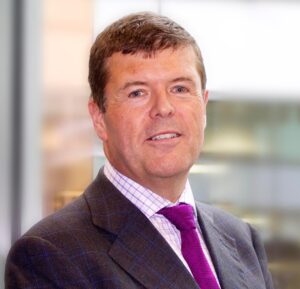Being in care is like living in a fish bowl because you have to repeat the same story over and over again to different professionals
This quote is from a young person, with whom Social Care Institute for Excellence (SCIE) Chair Paul Burstow and colleagues worked to address the mental wellbeing of looked after children as part of an expert working group. The group included a number of young people with direct experience of the care system. He explains just how valuable and useful these interactions were in this new blog...

They worked with professionals and others – we call that co-production – to produce sixteen recommendations to the Department of Health and Department for Education.
The report - launched in November at the House of Lords - recommends ways to improve support to children and young people in care.
A principal recommendation is the creation of a virtual mental health lead.
The aim of the role, if taken on, would see every child and young person in the system getting the support they need for their mental health and emotional wellbeing.
Co-production
So, Government ministers ordered the report and it was launched in parliament. But co-production was so important in getting a good outcome. Co-production is a phrase that’s often been used for adult social care, but perhaps less so for children and young people.
So it was particularly pleasing that young people were central to the design of the report; the key involvement of young people on the expert working group and in interviews led directly to the recommendation about the virtual mental health lead.
One of the expert group members, Chloe, who also spoke in the House of Lords on the day of launch, has written a blog about why co-production was so important for the success of the project.
When I was the minister responsible for launching CYP IAPT (improving access to psychological therapies), young people were involved at every stage, including interviewing each wave of Child and Adolescent Mental Health Services (CAMHS) who joined the programme.
BBC coverage
When we published the report and launched the young people's website, the BBC's Victoria Derbyshire show discussed the findings.
The expert working group were mentioned in the Government's green paper on young people and mental health. England's children's commissioner Anne Longfield told the programme there should be ‘a presumption’ among those working in the sector that all children in care should receive support for their mental health.
We hope to do more to embrace this area of work and are currently working to develop a mental health training course for professionals who work with looked after children and young people.
The course will also be useful for commissioners of care services and others working with young people. More details will be published soon and you can keep up-to-date by registering for a MySCIE account, after whycg you will receive the SCIELine bulletin.
Young people’s website
Throughout the course of the inquiry young people expressed their anger and frustration that professionals often make assumptions about their capacity to be involved in decision-making.
Many feel they are not kept in the loop about decisions made about them, without them. So not only have they had their say in the report by using film, photography, art and talking, but SCIE worked with children and young people of all abilities and backgrounds to create ways for them to tell their stories and share their ideas. The result is a new website for young people.
Back to our young person who compares being in care or leaving care to living in a fish bowl - because you have to repeat the same story over and over again to different professionals.
She says:
Everyone can see what’s going on and pass judgement but we’re all different. Don’t treat us like we’re just blowing bubbles. We can feel lonely and isolated in the bowl but everyone can see what’s going on in our lives and can pass judgement
Other issues on the website include: ‘Don’t judge us’ and ‘Give young people space and time to think about their issues’.
We hope that the expert working group’s recommendations will make a big impact so that young people’s mental health provision always remembers to support those who have experienced the care system.